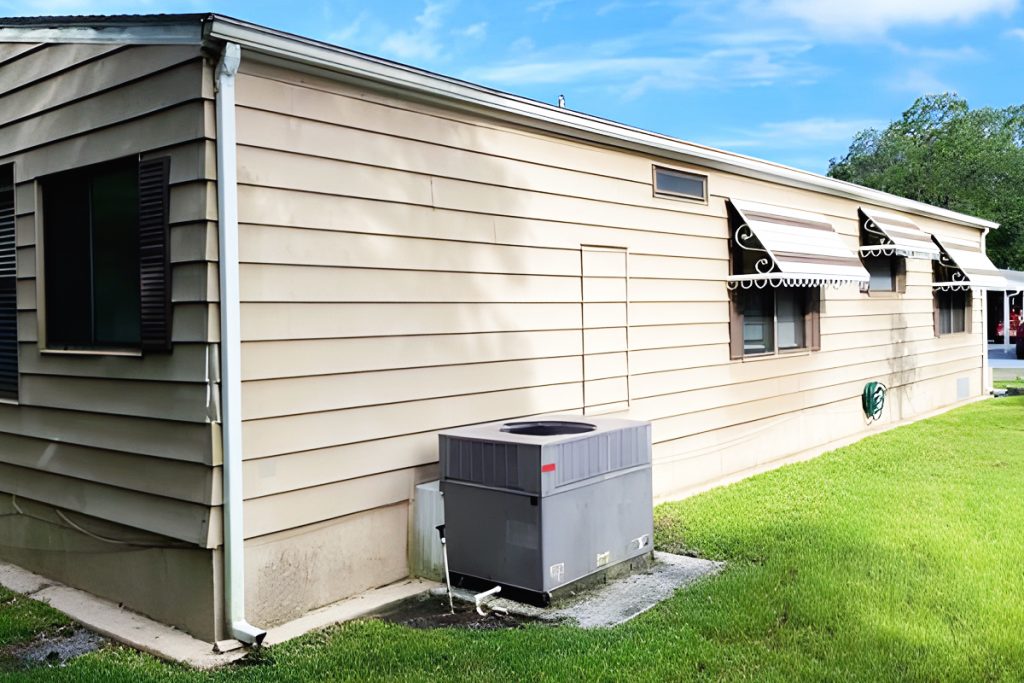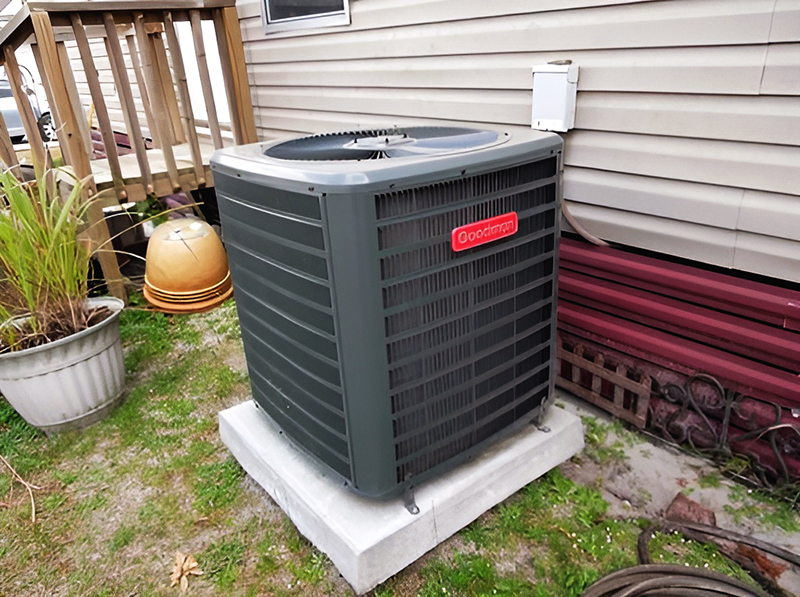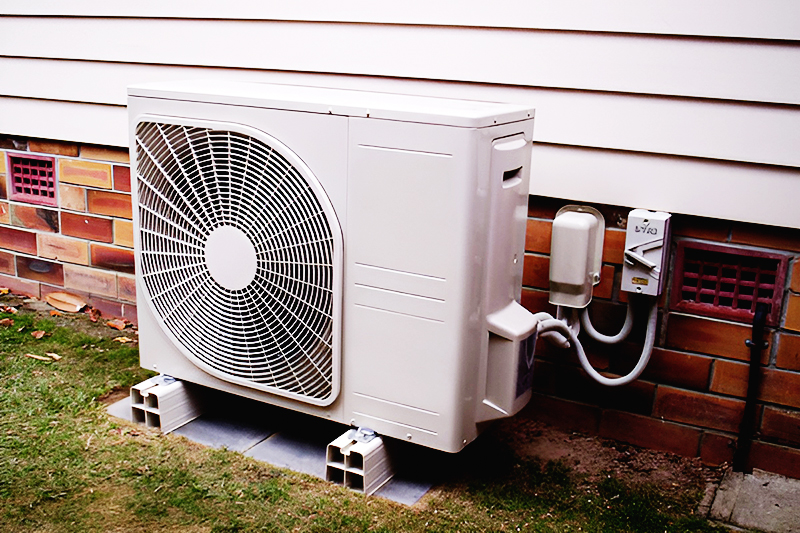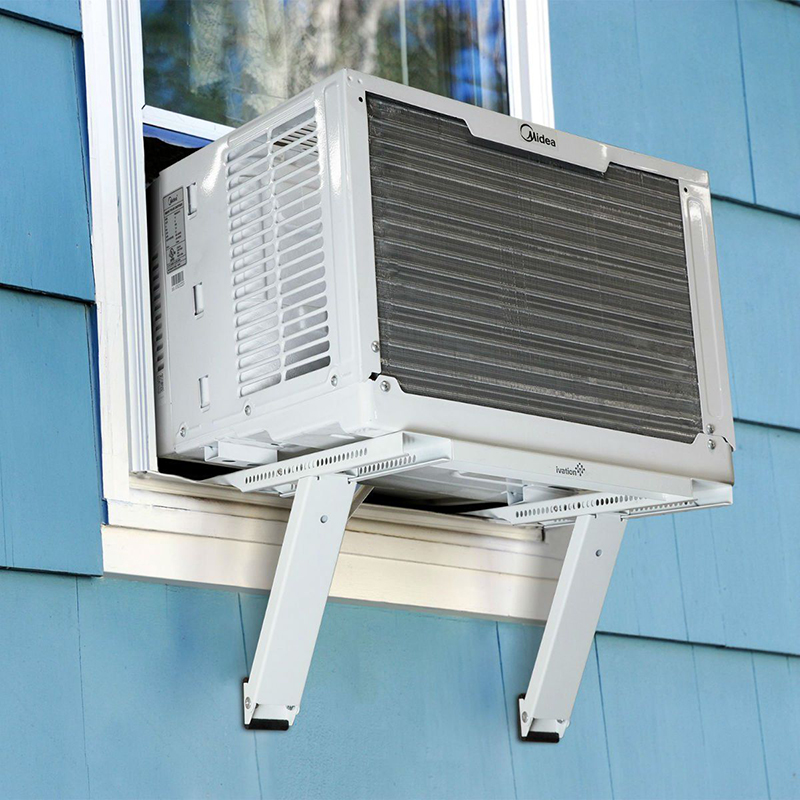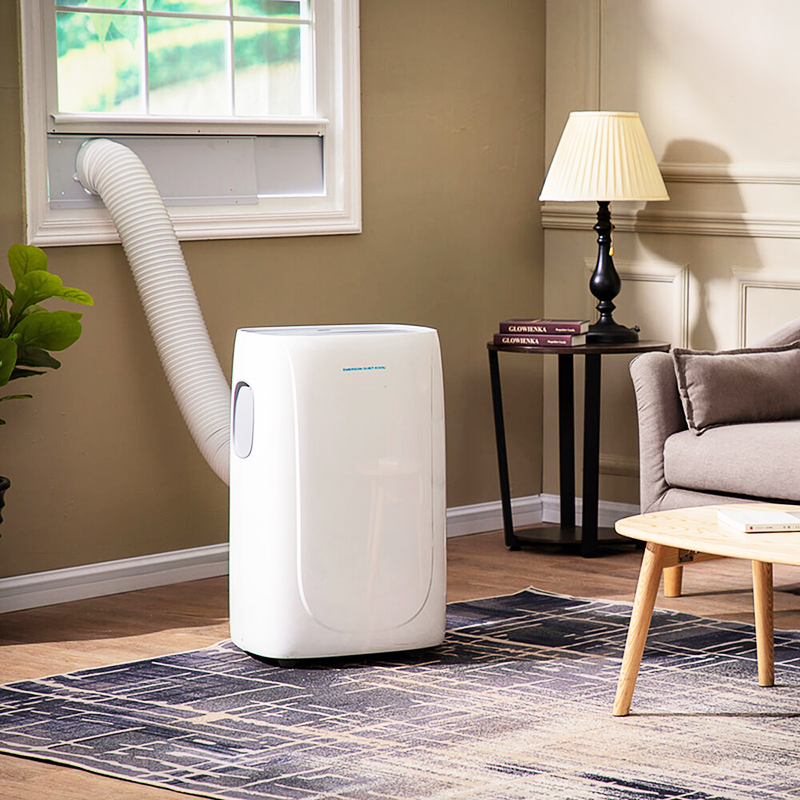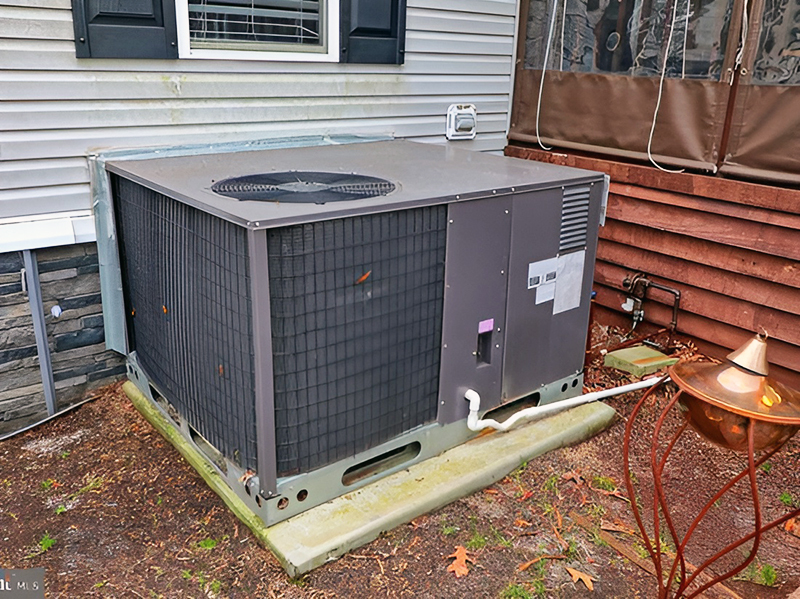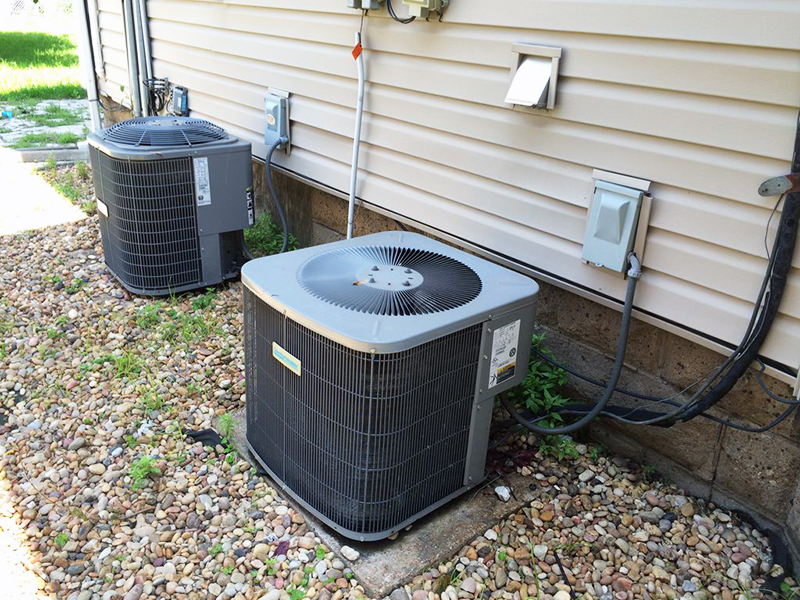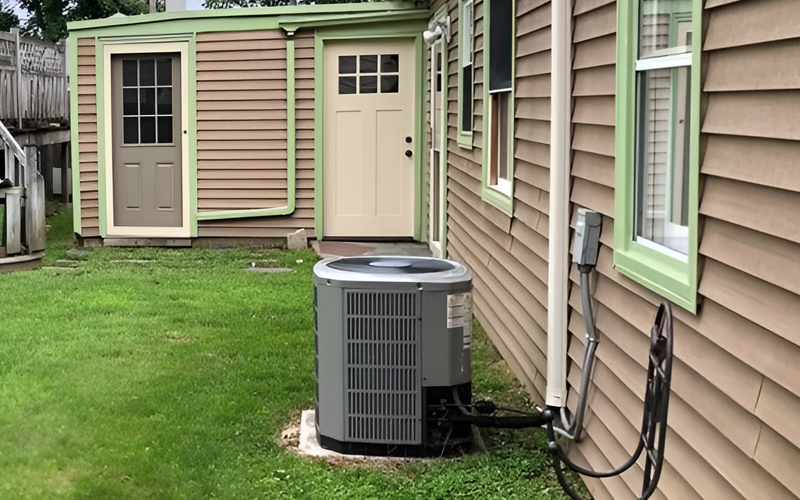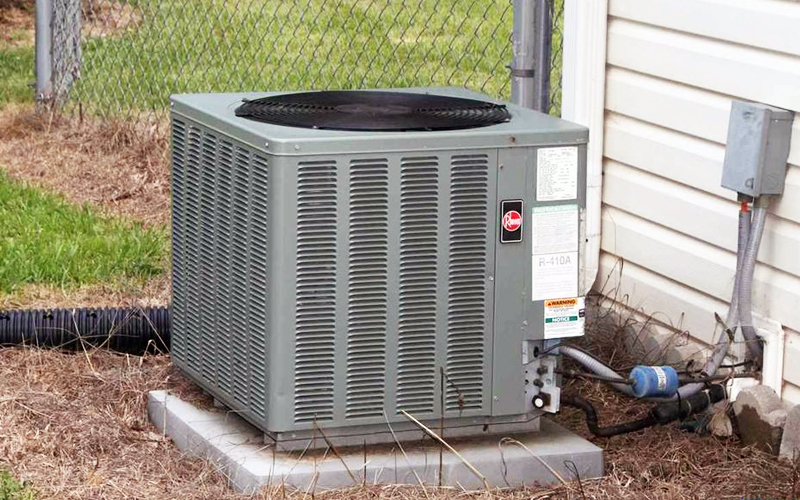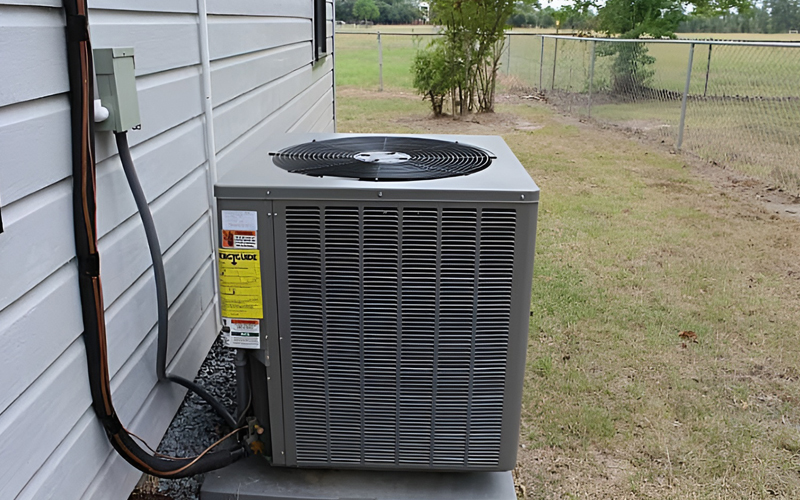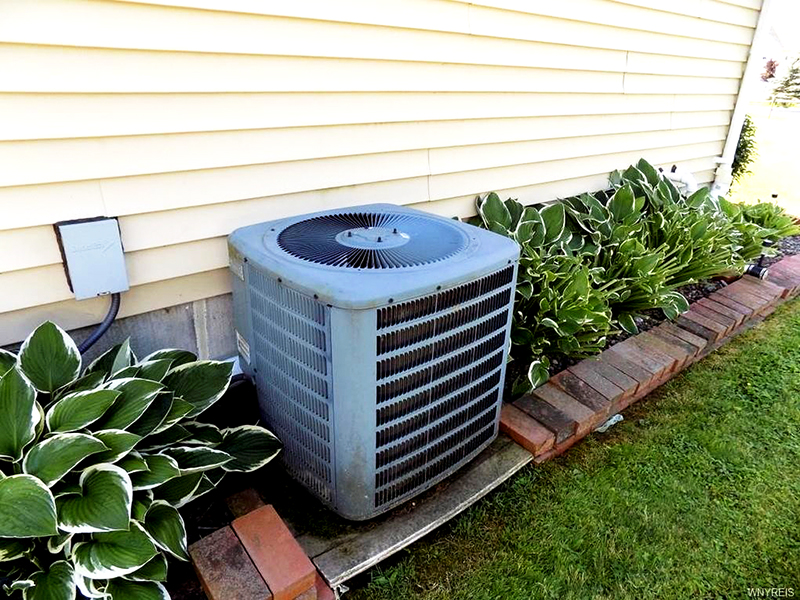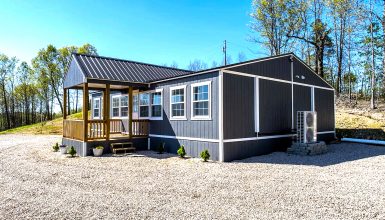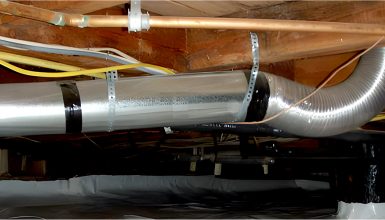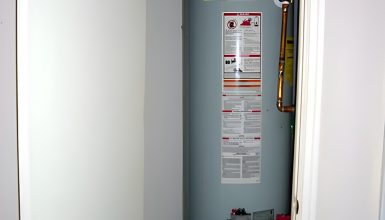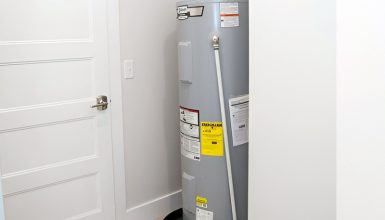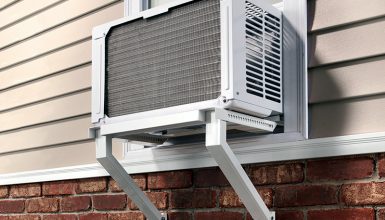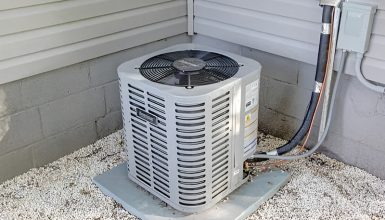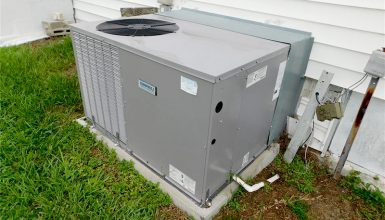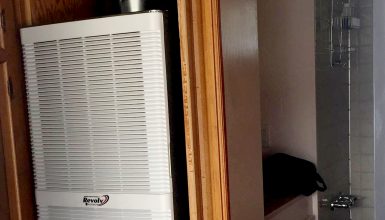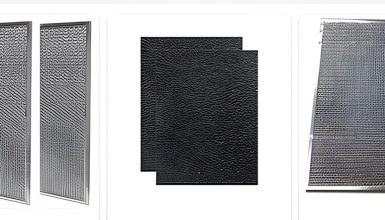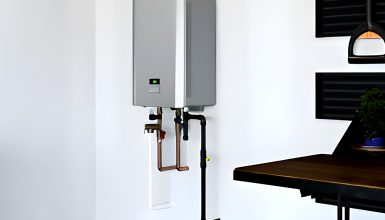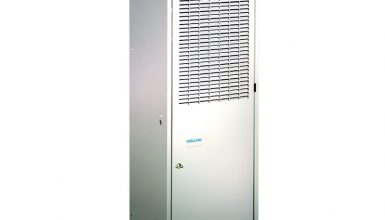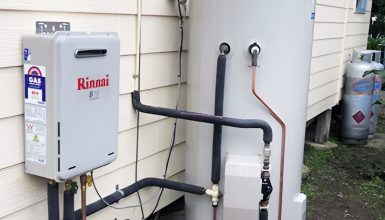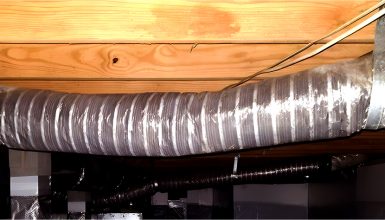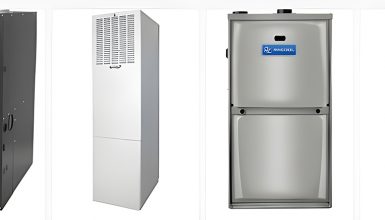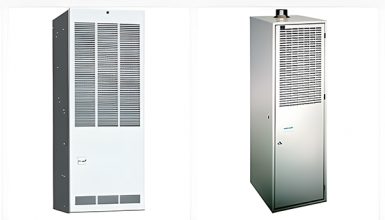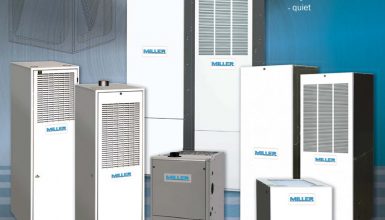Did you know an efficient mobile home AC unit can make your home worth more? That’s right! Buyers will love knowing they’re getting a house with a top-notch air conditioning system when it’s time to sell. So, buckle up and let us guide you through the world of mobile home air conditioner units, helping you find your perfect match for a cool and breezy summer.
Types of Mobile Home AC Units
Mobile homes need good airflow, especially on hot days. An effective AC can make your space more comfortable when summer heats up. It can also protect your health and keep the air fresh. However, small homes face unique challenges. Limited floor space and smaller windows make installation tricky. Also, you want to avoid bulky systems that crowd your living area. Some common types of air conditioners suitable for mobile homes include:
1. Central Air Conditioning Systems
Central air uses ducts to move cool air all around your home. The system pulls in warm air, cools it, and then sends it back out through vents. This means each room gets cool air, making the temperature even and comfortable.
One big plus is convenience. You won’t juggle multiple units. Also, the central AC runs quietly because much of the machinery sits outside. Yet, installation can be complex. It often requires new ducts and a bigger investment. The equipment itself can be pricey. But central air might be worth the effort if you value a smooth, uniform cooling experience.
2. Ductless Mini-Split Systems
Ductless mini-splits use two main parts. A small indoor air handler and a larger outdoor compressor are on your wall. They connect with a slim tube through the wall. This setup saves indoor space because you don’t need bulky ducts. Plus, the indoor unit often looks sleek and modern.
A big perk is energy efficiency. You can cool only the zones you want, so you don’t waste energy on empty rooms. Mini-splits also run quietly, which is perfect if noise bothers you. However, the initial cost can be high. Plus, you usually need professional installation. Still, many homeowners love the long-term savings on power bills.
3. Window Air Conditioner Units
A window unit sits in a window frame or a wall opening. The machine has two main sides. One side faces the room and blows cool air. The other side vents warm air outside. Sizes vary, from small units for single rooms to bigger models for entire living spaces.
One big advantage is cost. Window units are often cheaper and easy to install. You don’t usually need help from a pro. But there are drawbacks. A unit in the window can block your view. You may also get some drafts around the edges if it’s not sealed well. Still, a window AC might be your best bet if you need quick relief and have the right spot.
4. Portable Air Conditioner Units
Portable ACs sit on the floor. Many have wheels for easy movement. They take in warm air, cool it, and then send it back into the room—excess hot air vents out through a hose. Most models need a window kit for this venting.
Portable units fit well in tight corners. They don’t require wall openings. They work nicely if you want to cool a single room. Plus, you can roll them into different areas during the day. However, they do need a venting source. That usually means a small spot at a window or door. Some models also generate more noise than other types. They can be less efficient if the area is large. Yet, a portable AC can be an excellent choice for short-term or flexible use.
5. Packaged Air Conditioners
Packaged AC units keep all the parts in one big box. You often see this box outside, on a small slab. The compressor, fan, and coils live inside it. This design frees up floor space because there’s nothing bulky indoors. It also looks neat, with a single cabinet that a tech can easily service.
Simplicity is the key benefit. You get an outside system that handles all your cooling. But they can be costly upfront, and you need enough outdoor space to fit the unit. If your yard or lot is tight, a packaged AC might not work for you.
6 Best Mobile Home AC Unit Brands
Now that we’ve covered the mobile home AC types, it’s time to discuss the stars of the show: the top brands and models. We know you want nothing but the best for your mobile home, so we’ve researched to bring you the cream of the crop.
1. Revolv
This brand focuses explicitly on providing heating and cooling solutions for manufactured and mobile homes. They offer a range of products, including central air conditioning systems and package units, designed to cater to the unique needs of mobile homeowners. Revolv units are known for their durability, reliability, and efficiency, making them a solid choice for mobile home cooling.
2. AirQuest
A division of Carrier, AirQuest, is another brand that deserves attention. They offer a variety of air conditioning systems, including central air and ductless mini-splits, at competitive prices. AirQuest units are designed with efficiency and reliability in mind. They come with the backing of Carrier’s reputation for quality.
3. Goodman
These folks are all about delivering great value. Goodman offers affordable yet efficient and durable air conditioners. Keep an eye out for their central air systems if you’re looking for a budget-friendly option that doesn’t skimp on quality.
4. Mitsubishi Electric
If you’ve ever wondered who the king of ductless mini-splits is, look no further! Mitsubishi Electric specializes in these sleek, high-performing systems. Plus, their units boast some of the best energy efficiency ratings around.
5. LG
From window units to portable air conditioners, LG has something for everyone. Their products are known for their innovative features and user-friendly design. You’ll enjoy a cool home and cutting-edge technology with an LG unit.
6. Frigidaire
Window units, anyone? Frigidaire is a trusted name when it comes to these compact coolers. Their air conditioners offer reliable performance and are perfect for mobile homes with limited space.
How to Choose a Mobile Home AC Unit
Ready to find the perfect AC unit for your mobile home? Let’s break down the critical factors to consider when making your choice. Remember these points to ensure you get an AC unit that best suits your needs.
1. Size and cooling capacity (BTUh)
First, let’s figure out what size AC unit you need. You want excellent cooling capacity, measured in BTUh (British Thermal Units per hour). Remember, 12,000 BTUh equals one ton of cooling. AC units for homes come in 0.5-ton increments like 1.5, 2, 2.5, 3, and so on. For example, a 2,000-square-foot home might need a 3 or 3.5-ton unit, depending on where you live.
2. Energy efficiency (SEER, EER)
Next up is energy efficiency. Watch for the ratings of SEER (Seasonal Energy Efficiency Ratio) and EER (Energy Efficiency Ratio). Higher ratings mean lower energy bills and a happier planet. Look for models with the Energy Star label, too. They’re the cream of the crop when it comes to efficiency!
3. Noise level (decibels)
Nobody likes a noisy AC unit. Check the decibel (dB) rating to ensure your new AC won’t keep you up at night or drown out your favorite TV show. Lower dB ratings mean a quieter unit to stay cool and peaceful.
4. Installation requirements
Before bringing home your shiny new AC unit, consider where it will go and if your mobile home can handle it. Ensure you have enough space, the correct electrical setup, and proper ventilation. If unsure, a professional HVAC technician can help you figure it out.
5. Cost and budget
Last but not least, let’s talk about money. Consider the upfront cost of the AC unit, but don’t forget about operating costs and maintenance. Sometimes, spending more on a high-quality, energy-efficient unit can save you big bucks in the long run.
How Many Tons of AC Unit Do I Need for My Mobile Home?
To determine the appropriate size of an air conditioner for your mobile home, you’ll need to consider the size and layout of your home and the climate in your area. Air conditioner capacity is measured in British Thermal Units (BTUs) or tons, with one ton equal to 12,000 BTUs.
Here’s a general guideline to help you estimate the required capacity:
- Calculate the total square footage of the area you want to cool. Measure the length and width of each room and multiply them together. Add up the square footage of all rooms that need cooling.
- Use the following rule of thumb for estimating cooling capacity:
– For moderate climates: multiply the total square footage by 20-25 BTUs per square foot.
– For hot climates: multiply the total square footage by 30-35 BTUs per square foot. - Convert the total BTUs to tons by dividing by 12,000.
For example, if you have a 1,000-square-foot mobile home in a moderate climate, you may need a 20,000 to 25,000 BTU air conditioner (1.67 to 2.08 tons).
Remember that this is a rough estimate; factors like insulation, ceiling height, sun exposure, and the number of occupants can affect the required capacity.
Mobile Home AC Installation Tips
Now that you’ve picked the perfect air conditioner for your mobile home let’s talk installation! Doing it right ensures your new AC runs efficiently and keeps you cool for years. So, without further ado, here are some handy tips and best practices to make the installation process a breeze:
- DIY or Pro
First things first, decide whether you’re going to tackle the installation yourself or hire a professional. While window and portable units can be relatively easy to install, central air systems and ductless mini-splits often require the expertise of an HVAC technician. Don’t hesitate to call in the pros if you’re unsure – it’s worth the investment!
- Size matters
Ensure your new AC unit is the right size for your mobile home. An oversized unit can cause short cycling, while an undersized one might struggle to cool your space. Proper sizing ensures maximum efficiency and comfort.
- Location
Choose the best spot for your air conditioner. Ideally, place outdoor units in a shaded area with good airflow. Keep indoor units away from direct sunlight and heat sources. Remember to follow the manufacturer’s guidelines for proper clearance and ventilation.
- Safety first
When installing your AC, take safety precautions seriously. Turn off the power before starting, use appropriate tools, and wear protective gear. If unsure about something, consult the manual or contact a professional.
- Avoid common mistakes
Be mindful of typical installation errors. For example, ensure the AC is level and secure, and avoid blocking airflow with furniture or curtains. Also, ensure the condensate drain is correctly connected and positioned to prevent water damage.
Can You Put a Standard AC Unit On a Mobile Home?
While installing a standard residential air conditioning unit on a mobile home may be technically possible, it’s not always the best choice. Mobile homes have unique construction features, insulation, and space constraints. These can impact the effectiveness and efficiency of a standard house AC unit. Here are some reasons why using a house AC unit for a mobile home might not be ideal:
- Ductwork
Many mobile homes have smaller, more compact ductwork compared to traditional houses. A house AC unit may not be compatible with the existing ducts in a mobile home, requiring extensive modifications or upgrades, which can be expensive and complicated.
- Size and capacity
Mobile homes have less square footage than traditional houses, so their cooling needs differ. A house AC unit may be too large and powerful for a mobile home, leading to short cycling and reduced energy efficiency.
- Weight and space constraints
Mobile homes have weight restrictions and space limitations that must be considered when selecting an air conditioning system. A house AC unit may be too heavy or large for the mobile home’s structure or available space.
FAQs
Portable and window air conditioners are designed to cool single rooms or small areas. Depending on the size of your mobile home, one unit might not be sufficient for the entire space. Consider using multiple units or opting for a central air or ductless mini-split system to cool multiple rooms or larger areas.
Yes, there are several ways to improve the energy efficiency of your existing air conditioner. Ensure proper insulation and sealing of your mobile home to reduce cooling loss, clean or replace filters regularly. And schedule annual maintenance checks with a professional HVAC technician.
It’s recommended to have a professional HVAC technician inspect and service your air conditioner at least once a year. It ensures optimal performance and efficiency and prolongs the lifespan of the unit. Additionally, regularly clean or replace air filters, usually every 1-3 months, depending on usage.
The lifespan of an air conditioner unit depends on the type, brand, and maintenance. On average, a well-maintained air conditioner can last 10-15 years or more.

